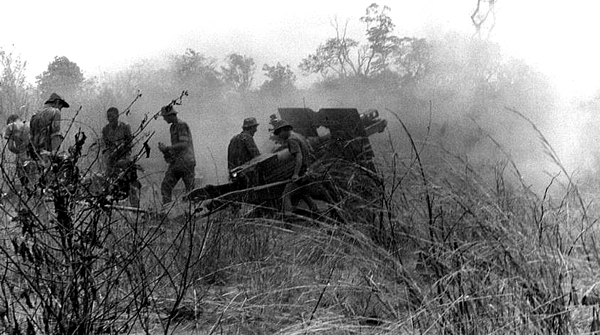Chimoio Attack revisited

 Lovemore Ranga Mataire The Reader
Lovemore Ranga Mataire The Reader
WHEN comrades who participated in the struggle for the liberation of Zimbabwe recount their experiences, their stories are always a mixture of pain tinged with a nostalgic feeling of triumph.
Painful in that they lost beloved compatriots and triumph in that their struggle was not in vain as Zimbabwe attained majority rule in 1980.
The mixture of pain and triumph is reflected in Chimoio Attack – Rhodesian Genocide, the first book by former guerilla commander Agrippah Mutambara (nom de guerre, Cde Dragon Patiripakashata), which documents one of the horrendous episodes of the liberation struggle when Rhodesian forces massacred thousands of combatants, refugees, innocent and defenceless women and children at Chimoio Camp in Mozambique.
Also Read…
In his foreword, Cde Mutambara who at independence became a diplomat, encourages fellow comrades to document their accounts of the struggle for the preservation of national memory and for the benefit of future generations and thus he says: “A critical factor in the reconstruction of the history of our struggle, its very linchpin, is the role played by the comrades who went out to take arms against the colonial regime. Regrettably their role and individual experiences have not been comprehensively documented.
“For each comrade who dies without recording his/her experiences, a chunk of history is buried with him or her. The attrition rate amongst the comrades has reached catastrophic proportions and threatens to undermine all efforts at recovering and recording history.”
Cde Mutambara’s call is not without basis for there is a danger in future generations relying more on narratives by counter revolutionaries who eulogised their exploits and present the liberation struggle as a daring occasional incursion adventure meant to vanquish so-called terrorists.
It is out of the conviction to present HIS story according to his own perspective that prompted Cde Mutambara to recount the Chimoio Attack in the form of a book aided by pictorial evidence which proves beyond doubt that this was indeed genocide.
In his words; “Chimoio Attack is based on my real experiences during the struggle. I wish to encourage all those who participated in waging the armed struggle to contribute to our history of revolutionary struggle by writing or narrating their experiences.”
In Chimoio Attack- Rhodesian Genocide, Cde Mutambara gives blow by blow account of how the attack took place.
In his narrative, Cde Mutambara reveals the importance of dreams in a war situation.
In his views, some dreams were a pointer to the future and he regrets not taking seriously one of his dreams a few days before the attack.
While Chimoio was the most fortified of all ZANLA camps in Mozambique in that it was the headquarters of the military movement, the attack came when everyone least expected the enemy to be so daring as to attack the camp in a neighbouring country.
Yet, according to Cde Mutambara, the enemy had already infiltrated their rank and had gathered enough information to ascertain the opportune time to attack in order to inflict maxim damage.
It was clear that the enemy had studied the movements.
The Rhodesian army used their superior airpower to decimate the whole camp and target any moving objects and also targeted strategic buildings including the makeshift clinic.
When the attack took place Cde Mutambara was about to chair a meeting of commanders as he had just been appointed the director of politics.
Sadly, the meeting never took place as comrades ran away instead of assisting other combatants who were offering resistance to enemy fire.
Even Cde Mutambara himself was momentarily engulfed in fear that immobilised his sense of fighting until a bomb that failed to detonate fell a few metres from where he was standing.
“A bomb hit the ground five metres away from where I was standing but failed to detonate. Had it exploded, I would have been history. What it succeeded in doing however was to break the trance that had entangled and immobilised me,” he said as he recounted events of the first day of the attack.
It must be noted that despite the surprise attack by the Rhodesian army, combatants at the camp offered stiff resistance to the raids.
Cde Mutambara was one of the few commanders who in the midst of enemy fire tried to organise and mobiles cadres to fight back.








Comments